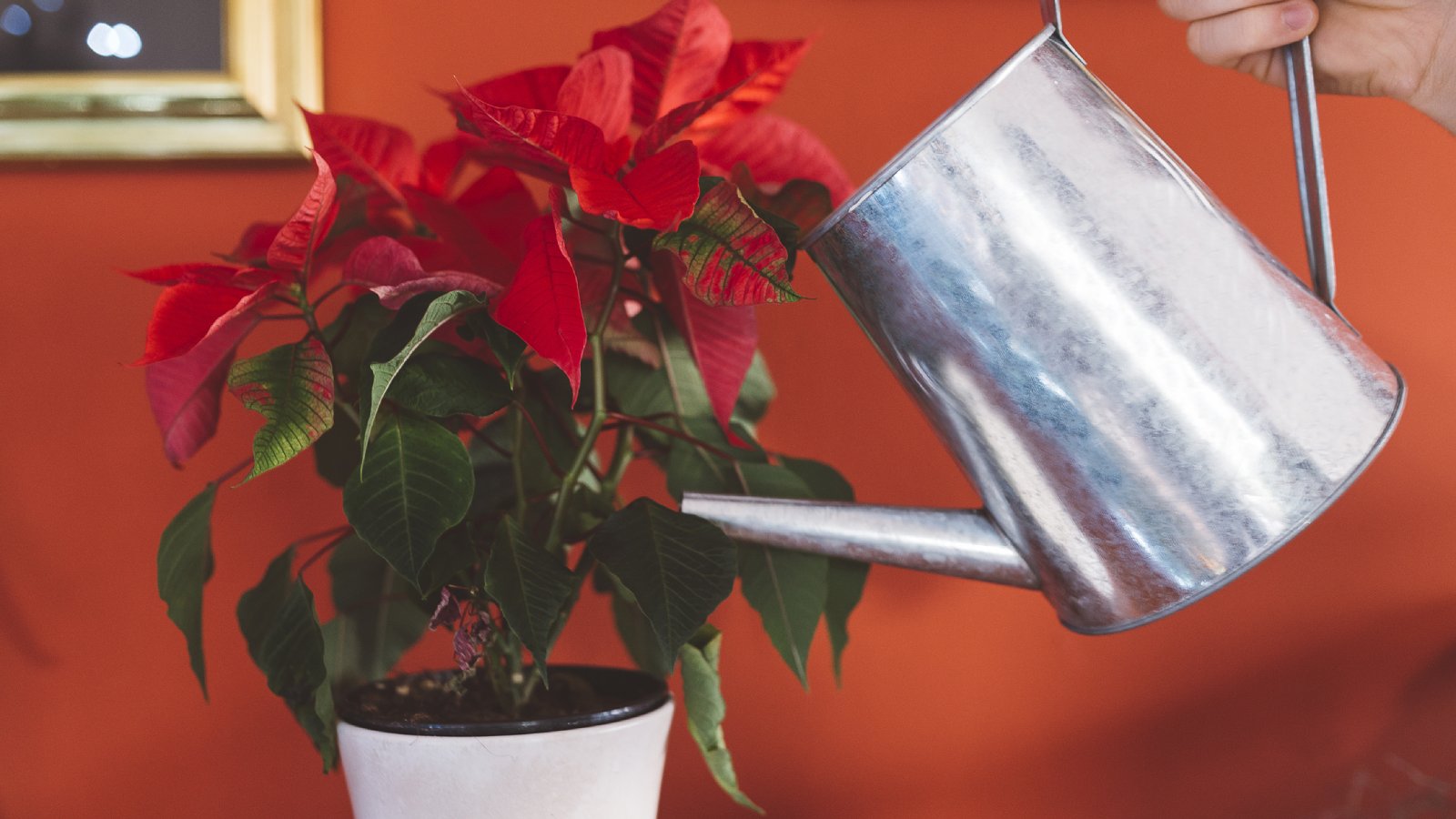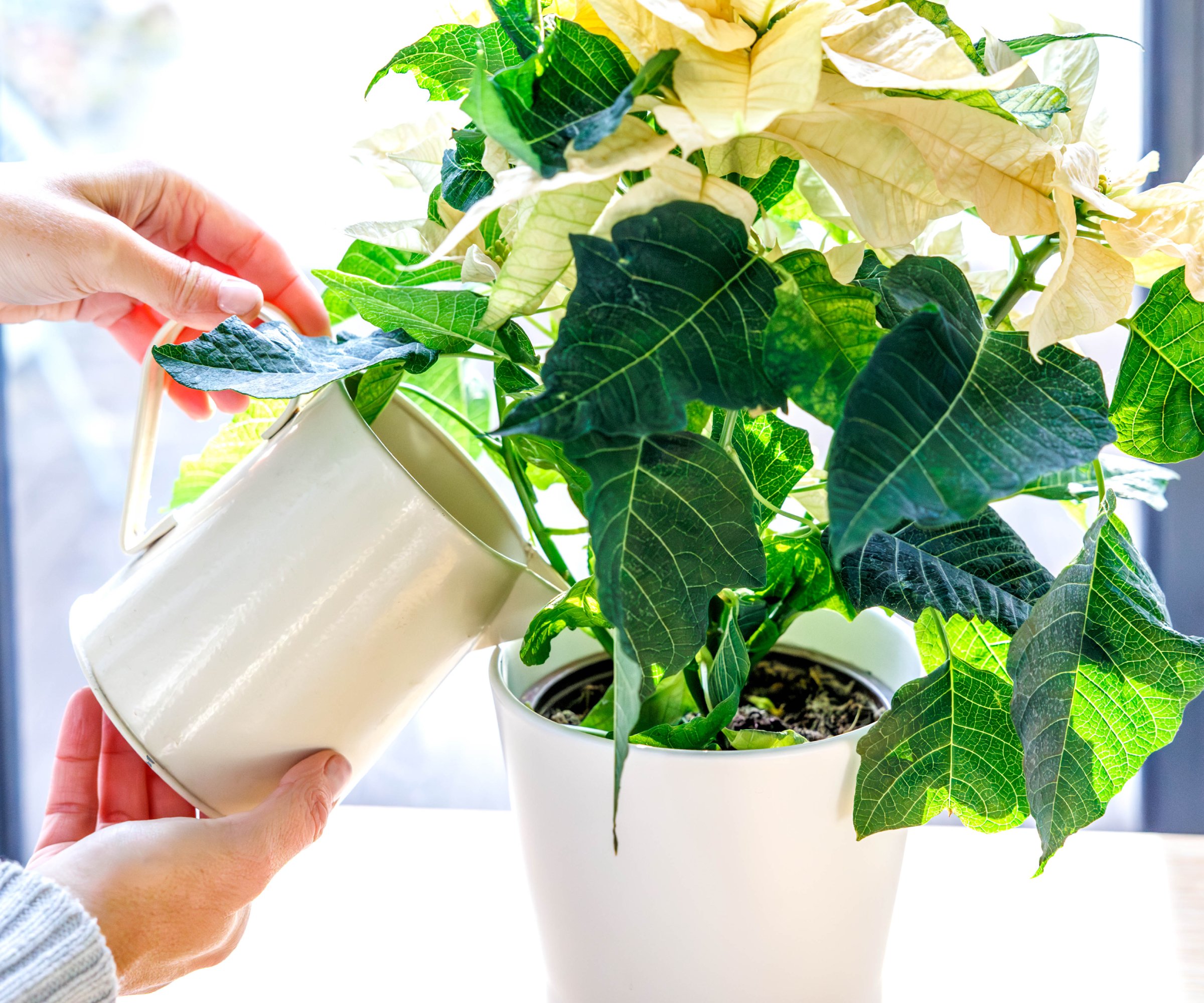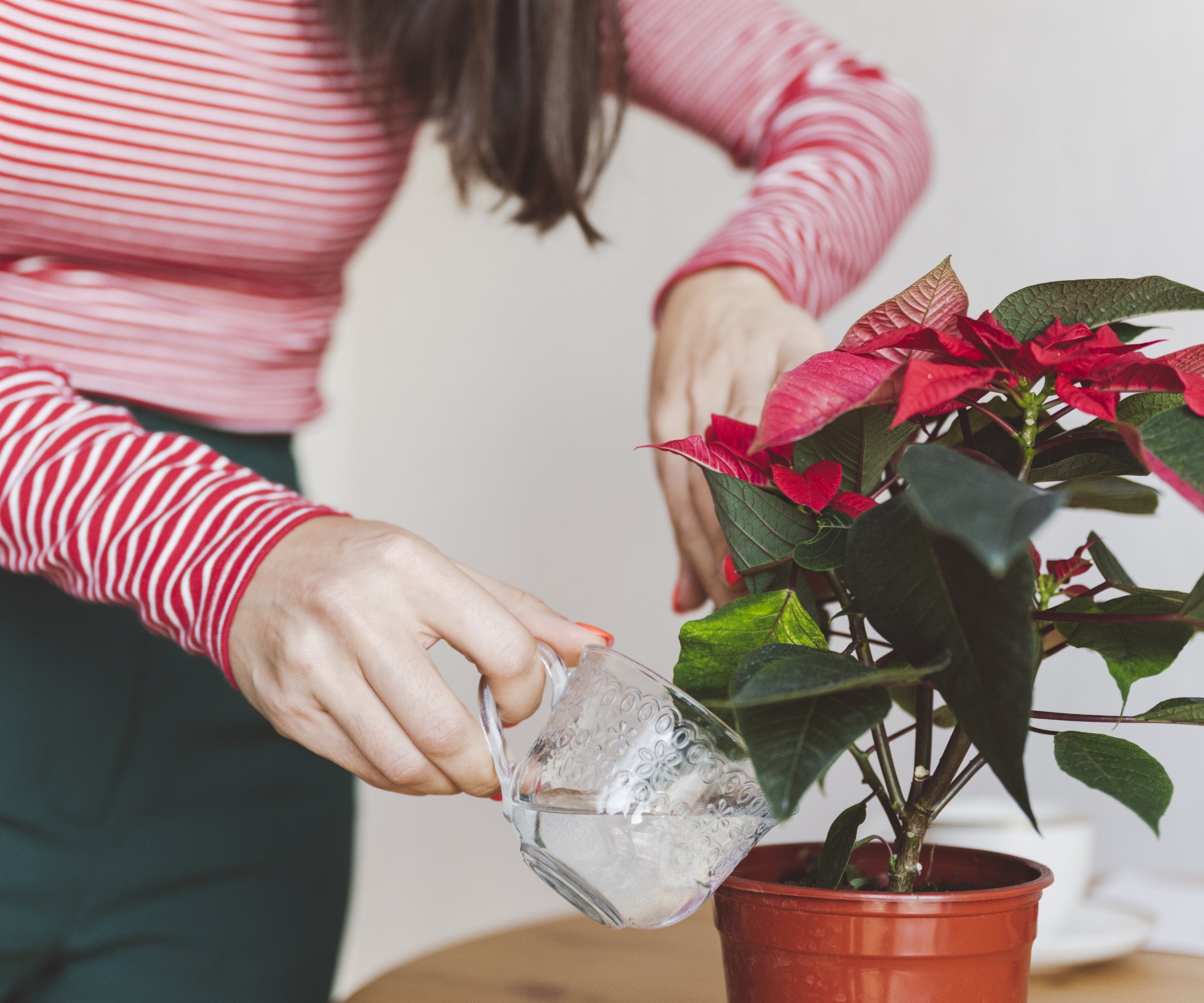How Often To Water Poinsettias For Lush, Lovely Plants The Whole Holiday Season
Poinsettias are made to last, and yours can too if you know the secret. Here's how to keep your thirsty plant drinking well after Christmas.

Amy Draiss

Sign up for the Gardening Know How newsletter today and receive a free copy of our e-book "How to Grow Delicious Tomatoes".
You are now subscribed
Your newsletter sign-up was successful
What’s red and green and appears in stores around the holidays? There are many answers to that question, but one plant that fits the bill is poinsettia, with bright red bracts and forest green leaves, the most popular potted plant in this country. While it’s easy to consider these to be simply part of the holiday décor, they are actually real, live plants that hail from the Mexican tropics.
If you want to keep your holiday plant as a pretty houseplant for a few weeks or months, watering is an important part of poinsettia care. But a lot of people don’t know how often to water poinsettias, or how much water to use. That depends on a few factors, like the type of soil in the pot and the home temperatures.
How Often to Water Poinsettias

The day you buy or are gifted a potted poinsettia, it probably looks its best. The leaves are bright, clean and open, the red “flowers” are bold and light up the room. But unless you water that plant regularly, you’ll soon see signs of wilt.
How often should you water a poinsettia? As with many tropical plants, the poinsettia does best if the soil is moist but not wet. That means that the quality of the soil will help you to answer this question. The heavier the soil, the less frequently you need to water.
However, unless you’ve purchased your plant from a garden store, it’s not likely that top potting soil was involved. If the soil is very light, it dries faster. In that case, how often do you water poinsettias? You may have to water more often, perhaps even every other day. Warmer home temperatures (above 70 degrees F during the day or 55 degrees F at night) can also dry out the plant faster.
How Much Water Do Poinsettias Need?
A poinsettia plant requires water when the soil dries out, but how much? Water the soil thoroughly when it is dry so that the roots in the bottom of the container get a drink. When you see excess water emerging from the drain holes in the container, you’ve provided enough.
How to Water Poinsettias

Watering poinsettias is like watering most houseplants: you pour water into the top of the container and keep adding water until it starts coming out of the holes in the bottom of the pot. But when it comes to these plants, often sold in grocery stores as short-term decorations, you’ll need to take a few other steps.
Sign up for the Gardening Know How newsletter today and receive a free copy of our e-book "How to Grow Delicious Tomatoes".
First, most poinsettias are sold in pots wrapped in green, red, or silver foil. You always need to remove foil on plants, at least from the bottom of the pot, when you water. Otherwise, the foil prevents water from dripping out. Waterlogged soil will cause root rot and the plant will quickly die.
A second extra step is to check the bottom of the pot for drainage holes. Sometimes plants are soil without drain holes, and if this is the case, you’ll have to either poke some into the container or else change pots.
Frequently Asked Questions
Can you overwater a poinsettia?
There is an intimate connection between a houseplant’s soil and the amount of water it needs. If a plant has soil offering good drainage, as well as a pot with generous drain holes, overwatering is rare. You pour in water, and excess water runs out. If the plant has soil that doesn’t drain well, the pot lacks adequate drain holes, or you allow the plant to sit in a saucer in water, you are effectively overwatering a poinsettia.
What does a poinsettia look like when it needs water?
Your guide to when to water a poinsettia is the dryness of the soil on the top of the plant. If it is dry, it needs water. Don’t wait for the plant to wilt. Instead, it’s likely to start dropping leaves if it doesn’t get enough water, but take care, because this is also a sign of too much water.

Teo Spengler is a master gardener and a docent at the San Francisco Botanical Garden, where she hosts public tours. She has studied horticulture and written about nature, trees, plants, and gardening for more than two decades, following a career as an attorney and legal writer. Her extended family includes some 30 houseplants and hundreds of outdoor plants, including 250 trees, which are her main passion. Spengler currently splits her life between San Francisco and the French Basque Country, though she was raised in Alaska, giving her experience of gardening in a range of climates.
- Amy DraissDigital Community Manager